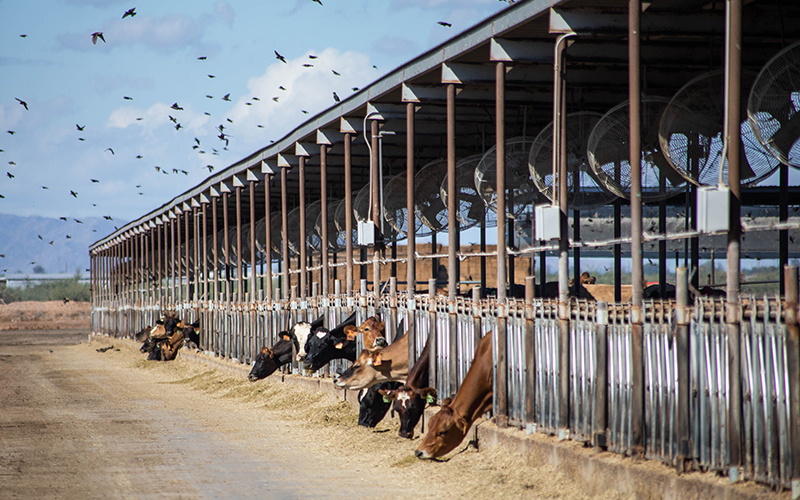
Cows at Jim Boyle’s dairy farm in Mesa eat and rest between milking. (Photo by Celisse Jones/Cronkite News)
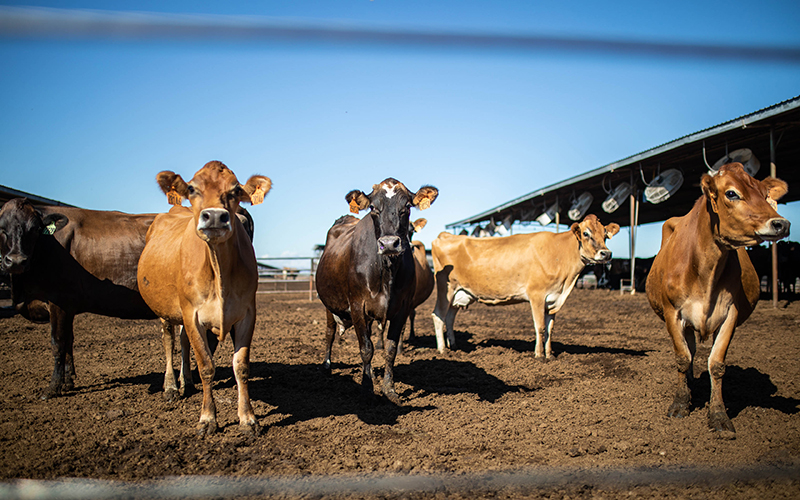
Pregnant cows are separated to rest before calving at Jim Boyle’s dairy farm in Mesa. (Photo by Celisse Jones/Cronkite News)
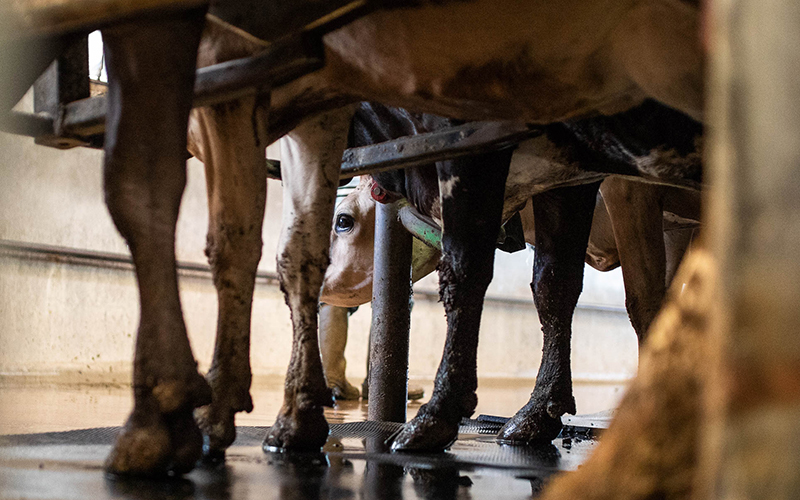
Cows are lined up for milking at a dairy farm in Mesa. (Photo by Celisse Jones/Cronkite News)
MESA – Two representatives of Arizona dairy farmers said a recent U.S. trade agreement benefits dairy producers exporting to Canada, but they worry retaliatory tariffs from Mexico will continue to hamper their industry.
In a deal reached Sept. 30, Canada agreed to eliminate a controversial pricing system and open up more of its market to the U.S. Canada’s strict dairy quota limits imports from the U.S. to favor Canadian farmers.
Jim Boyle, a Mesa dairy farmer with 1,800 milking cows and member of the United Dairymen of Arizona, said the deal with Canada was a welcome surprise that gives farmers “a little more access” to that market.

Jim Boyle’s Mesa dairy farm has about 1,800 milking cows. (Photo by Celisse Jones/Cronkite News)
“I remember I was in D.C. last year and everybody was just amazed that the administration was actively talking about dairy trade,” Boyle said. “No administration for decades had ever really talked about dairy trade as a major component of any deal.”
The new agreement, known as the United States-Mexico-Canada Agreement, or USMCA, as a replacement for NAFTA, the North American Free Trade Agreement, which President Donald Trump has long opposed.
Keith Murfield, chief executive of United Dairymen of Arizona, said Canada’s pricing system had “lowered the whole world market.”
“A lot of this will help the producers more in the Northeast” who are closer to Canada, he said, but “indirectly, it will help producers in Arizona.”
Murfield says it has been tough for producers to make money, but he doesn’t think consumers will see any difference in the prices they pay at the store.
“The American consumer has some of the cheapest dairy products in the world; you know that when you go to the store.”
Boyle called the deal a step in the right direction for the U.S. dairy industry as a whole, but the impacts on Arizona are minimal because only a small portion of Arizona’s dairy products go to Canada.
But he is worried about tariffs Mexico placed on agricultural exports on May 31 in retaliation to the Trump administration’s restrictions on steel and aluminum imports to the U.S.
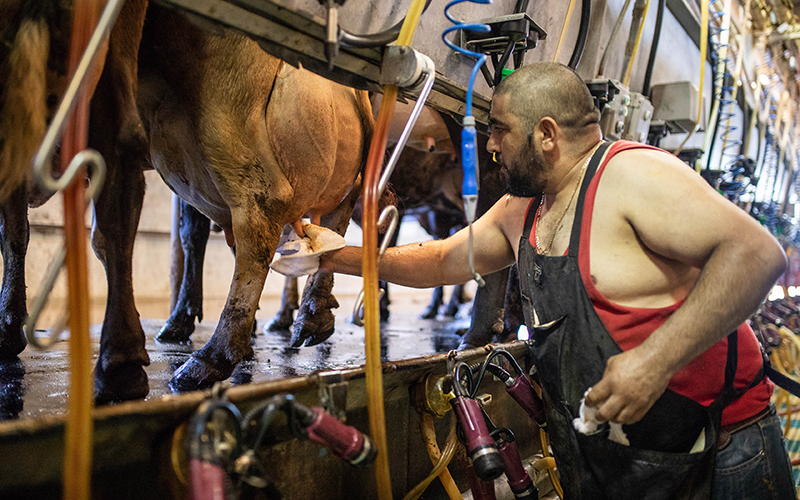
Dairy worker Gerardo Garcia dips teats with a disinfecting sealant after the cows are milked. (Photo by Celisse Jones/Cronkite News)
“During the new NAFTA negotiations, we placed tariffs on imported steel and aluminum and other products from Mexico and Canada, which then forced Mexico to place a number of tariffs on American agricultural products going south,” said Boyle, who also is a member of the Arizona Farm Bureau. “That was a big hit to us.”
U.S. negotiators refused to lift the metal tariffs as part of the USMCA, which Boyle said was “kind of a letdown in the industry to a certain extent – that this isn’t going to cure any of our problems real quickly.”
Arizona has an estimated 110 dairy farms and eight dairy plants that, in 2016, produced $111 million in dairy exports, according to U.S. Dairy Export Council data for 2015 and 2016.
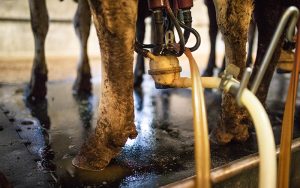
Milking machines are attached to the teats during the milking process at the Boyle dairy farm. (Photo by Celisse Jones/Cronkite News)
Murfield noted that Mexico is by far the Number 1 destination for dairy from the U.S. and said Mexico, as an Arizona neighbor, is one of the state’s leading destinations for a variety of exports.
“We have a shredding and cutting operation in Mexico City, but we’re not able to bring U.S. cheese in yet, and this negotiation does not change anything,” Murfield said. “It is still hooked to the steel and aluminum” tariffs.
Boyle said the U.S. dairy industry has been struggling for a long time because of the excess production of dairy around the globe. He says that in terms of affecting their milk profits, it’s going to be awhile.
He also is concerned about roadblocks to the deal with Canada, which could prolong restrictive Mexico tariffs.
The trade agreement is expected to be signed in November, but Boyle said the midterm elections could block the deal if Democrats take control of the House.
Sen. Ron Wyden, D-Oregon, ranking member on the Senate Finance Committee, appeared to reserve judgment in a statement that said he wanted to learn whether the revamped NAFTA – now known as USMCA – “lives up to the president’s promise to strike a new deal that truly benefits U.S. workers, innovators and farmers.”
– Video by Jimmie Jackson
This story is part of Elemental: Covering Sustainability, a multimedia collaboration between Cronkite News, Arizona PBS, KJZZ, KPCC, Rocky Mountain PBS and PBS SoCal.